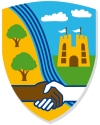The Department for Education (DFE) has published statutory guidance for school for “Relationships Education, Relationships and Sex Education (RSE) and Health Education”.
You can view the full guidance here: https://www.gov.uk/government/publications/relationships-education-relationships-and-sex-education-rse-and-health-education
This is now mandatory for schools to comply with.
The statutory framework for Primary school is divided into two main sections: Health Education, and Relationships Education and has the following sections:
Health Education
- Families and people who care for me
- Caring friendships
- Online relationships
- Being safe
Relationships Education
- Mental wellbeing
- Internet safety and harms
- Physical health and fitness
- Healthy eating
- Drugs, alcohol and tobacco
- Health and prevention
- Basic first aid
- Changing adolescent body
At Colebourne, we deliver the statutory requirements for Relationships and Health Education through our Personal, Social, Health and Economic Education (PSHE) curriculum, which aims is to equip children with the skills and understanding to become healthy, secure, independent and responsible members of society. We prepare our pupils for the opportunities, responsibilities and experiences in later life and encourage them to use developing social skills and knowledge to identify risk to make safe decisions for them.
PSHE has an integral part to play in building pupils’ mental wellbeing and their understanding of themselves as part of a family, community and wider society. As our pupils grow, they will understand their rights as global citizens and the responsibility that this brings.
Parents do not have a legal right to withdraw their child(ren) from teaching covered in the statutory guidance.
There are weekly PSHE (Personal, Social, Health and Economic) lessons in each year group for approximately 30min per week. These sessions cover all the statutory requirements for Health and Relationships education. Many aspects will also be covered through general day to day interactions, assemblies, stories and through visits and visitors.
At Colebourne, we mainly use a published scheme called Jigsaw for our PSHE curriculum. This has been adapted following consultation with parent, staff and governors. Details of the consultation that took place can be found here:– The consultation web-page
There are 6 units each year for each year group
- Being me in My World
- Celebrating Difference
- Dreams and Goals
- Healthy Me
- Relationships
- Changing me
We also use some external units instead of a few units which can be seen below.
You can also download the PSHS/RSHE Policy here: PSHE – RSHE – Policy
Puberty and Reproduction
In addition to our PSHE work, we also teach elements of puberty and reproduction through our science curriculum. The planning and resources for our Year 5 unit of puberty and the Year 6 unit on human reproduction was updated (July 2021) to take account of some of the new relationships and health education requirements and to ensure it is suitable for our children and community.
Key objectives for the Year 5 unit:
Heath Education
- key facts about puberty and the changing adolescent body, particularly from age 9 through to age 11, including physical and emotional changes.
- about menstrual wellbeing including the key facts about the menstrual cycle (Girls only in Year 5); Boys will cover the menstrual cycle in Year 6.
Science
- describe the changes as humans develop to old age.
- pupils should learn about the changes experienced in puberty.
Key objectives for the Year 6 unit:
Heath Education
- key facts about puberty and the changing adolescent body, particularly from age 9 through to age 11, including physical and emotional changes.
- about menstrual wellbeing including the key facts about the menstrual cycle
- that each person’s body belongs to them, and the differences between appropriate and inappropriate or unsafe physical, and other, contact.
- how to recognise and report feelings of being unsafe.
Science
- describe the changes as humans develop to old age.
- describe the life process of reproduction in some plants and animals .
- pupils should find out about different types of reproduction, including sexual and asexual reproduction in plants, and sexual reproduction in animals.
- pupils should learn about the changes experienced in puberty.
- pupils could work scientifically by researching the gestation periods of other animals and comparing them with humans; by finding out and recording the length and mass of a baby as it grows.
The units and resources are always shared with parents before the units take place. If your chid is not in year 5 and 6 but you would like to see the materials used, please contact the school office.
Updated: July 2024

